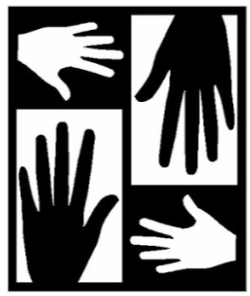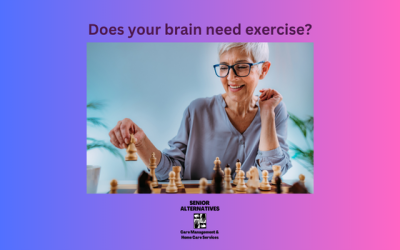April 23, 2020

As parents and grandparents age, many adult children (and seniors themselves) fear that their loved one will be diagnosed with dementia or Alzheimer’s disease. However, there is another disease that poses the biggest threat to senior mental health: depression. In fact, depressive disorders are the top mental health issue faced by seniors today, as one in four older adults experiences some mental disorder. The number of older adults diagnosed with depression is expected to rise significantly in the next ten years, according to experts. Closely following depression are cognitive disorders (such as dementia and Alzheimer’s disease), anxiety disorders and substance abuse disorders, respectively.
Depression and other mental health issues are widely unrecognized and untreated among seniors. The following are some signs that a senior may be suffering from a mental health concern, such as depression:
-
Persistent sadness
-
Trouble falling asleep or sleeping too much
-
Decreased socialization
-
Loss of interest in usual activities
-
Excessive worrying
-
Irritability
-
Feeling worthless, helpless or hopeless
-
Changes in appetite
-
Crying spells
-
Trouble focusing, remembering or making decisions
Depression sometimes gets misdiagnosed as dementia. An older adult with depression may exhibit dementia-like symptoms, such as forgetfulness, disorientation and inattentiveness. This so-called pseudodementia sets in after the person has already shown signs of depression. Someone with depression-related pseudodementia will complain about memory loss, whereas a person with Alzheimer’s disease or another form of dementia will usually try to conceal memory loss.
It’s also not unusual for a person with dementia to develop depression. Before depression sets in, however, mental decline will have already begun. Other psychological and emotional issues that can arise from dementia include anger, anxiety, loss of inhibitions and paranoia.
The fact is, many older people are also dealing with emotional issues that often come with age: the death of a spouse or close friend, changing roles in retirement, a reduced income, isolation and changes in a living situation. Many seniors also have multiple physical health issues, which can add to mental health problems. However, feeling depressed or anxious does not have to be a part of getting older. If you are suffering from a mental health issue in what are supposed to be your golden years, mental health experts can help. Many mental health disorders can be successfully treated, no matter your age. There are plenty of treatment modalities and ways of re-engaging people with their “joie de vivre” which are easy to access and well worth it.
Getting an accurate diagnosis is the first step to effective treatment. Common health conditions and some medications can cause symptoms that look like mental health issues. In some cases, a simple medication adjustment or treatment for a physical problem can lead to big improvements in mental health. The most important thing to know is that help is available. If you or someone you know is feeling depressed, reach out to your/their primary care provider today. If you feel that you or they are in imminent danger of self harm or suicide, call 911.
The fact is, many older people are also dealing with emotional issues that often come with age: the death of a spouse or close friend, changing roles in retirement, a reduced income, isolation and changes in a living situation.
Related Articles
Summertime is here, let us help you plan the perfect picnic…
Summertime is a great time to enjoy the outdoors and plan a picnic, the perfect opportunity to bring joy especially for seniors in your life. With a bit of thoughtful preparation, you can create an experience that is both comfortable and memorable. To help you get started, here are some tips and ideas to plan a senior-friendly picnic that prioritizes accessibility, safety, and relaxation.
Boost Cognitive Function Through Brain Exercises
Just like the rest of your body, your brain changes and adapts over time. Through a concept known as neuroplasticity, your brain can form new connections, strengthen existing ones, and even recover lost abilities. Regular mental exercises can have a significant impact on your brain health. Read on to know more…
Why People in Blue Zones Thrive and Live Longer
Blue Zones are regions where people live longer, healthier lives compared to the global average. These areas have been studied extensively to find common denominators and answers about what makes these places unique. One of the key components of these lifestyles is community engagement, or having a strong sense of belonging and support from others. Read on to know more about Blue Zones and how we can duplicate their lifestyle and best practices.





